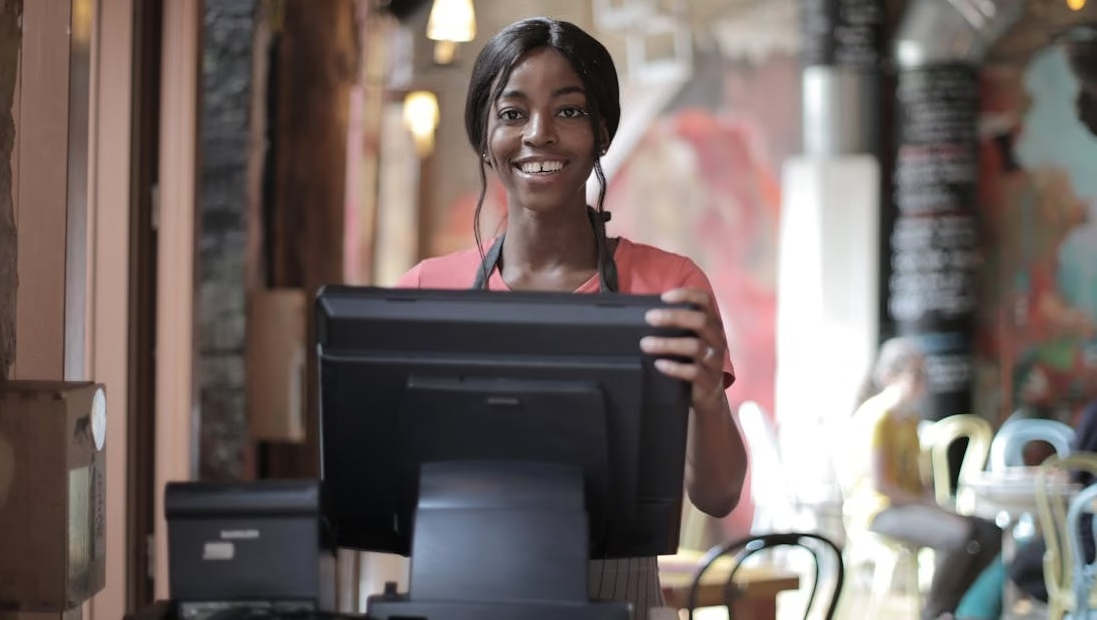

The restaurant and hospitality industry in the UAE is thriving, attracting both residents and tourists who expect world-class dining and accommodation experiences. But with this growth comes the responsibility of handling VAT correctly.
Whether you run a fine-dining restaurant, a hotel, a café, or a catering service, understanding how VAT applies to your business is crucial to staying compliant and avoiding penalties.
Since the introduction of VAT in the UAE, many restaurant and hospitality businesses have struggled with how to charge VAT on food and beverages, handle service charges, account for VAT on discounts and promotions, and properly file VAT returns.
A single mistake in VAT compliance can result in fines, disrupted cash flow, and reputational damage.
This guide will explain how VAT works for restaurants and hospitality businesses, common mistakes to avoid, and strategies to ensure smooth compliance with UAE tax laws.
By the end, you’ll have a clear understanding of what you need to do to protect your business from tax risks and operate with confidence.
VAT in the UAE is charged at a standard rate of 5% on most goods and services, and this includes sales made by restaurants, hotels, cafés, and catering businesses.
However, not all transactions are taxed the same way. The type of service you provide, how payments are structured, and whether your customers are tourists or residents all affect VAT treatment.
All food and beverage sales in restaurants, cafés, and hotels are subject to 5% VAT. Whether a customer dines in, orders takeaway, or requests home delivery, VAT must be charged and shown on the invoice.
One common mistake that many businesses make is excluding VAT from menu prices and only adding it at the final billing stage. While this is legally allowed, it often leads to customer confusion and potential complaints.
To improve transparency and customer experience, many restaurants prefer to display menu prices inclusive of VAT to avoid misunderstandings.
Many high-end restaurants and hospitality businesses add a service charge to customer bills, usually as a percentage of the total amount.
The Federal Tax Authority (FTA) considers these service charges as part of the total price for services provided, meaning VAT must be charged on them.
However, if a customer voluntarily leaves a tip for a waiter or service staff, this amount is not subject to VAT because it is not considered part of the business’s revenue.
To avoid compliance issues, businesses must clearly differentiate mandatory service charges (taxable) from voluntary tips (non-taxable) in their accounting records.
Restaurants and hotels frequently offer discounts, promotions, and complimentary meals or drinks to attract customers. While these strategies help boost sales, they can complicate VAT calculations if not handled correctly.
When a discount is applied to an invoice, VAT must be calculated on the reduced amount rather than the original price.

However, if an item is provided free of charge as part of a promotion, businesses may still be required to account for VAT based on the item’s fair market value.
The FTA treats free promotional items as taxable supplies, meaning businesses need to maintain proper records of such transactions.
Failing to account for VAT on discounts and promotions correctly can lead to errors in VAT filings, which could trigger audits and penalties.
Hotels and resorts must charge 5% VAT on room rates, food services, and additional amenities such as spa treatments, gym access, and laundry services. However, accommodation providers must also consider the impact of tourism fees and municipality taxes, which are separate from VAT but must be accounted for correctly.
VAT also applies to advance payments and deposits. If a guest books a hotel stay and pays in advance, VAT must be recorded at the time of payment, even if the stay occurs at a later date. Businesses that delay recording VAT on advance bookings risk underreporting their tax liabilities.
For hotels that cater to international tourists, VAT refund schemes for tourists may apply to certain purchases made within the premises, such as souvenirs or retail items.
Hotels must ensure that their systems are equipped to process VAT refunds for eligible guests.
Catering businesses that provide food services for private events, corporate functions, and weddings must apply 5% VAT on all services, including food, staffing, and venue setup.
However, if catering services are provided within a Designated Zone—a specific free zone with special tax rules—VAT may not be applicable under certain conditions.
Event organizers who handle large-scale conferences and exhibitions must also determine whether their services qualify for special VAT treatments, especially when working with international clients or government entities.
Proper VAT classification is essential to avoid overcharging or undercharging VAT.
With so many moving parts in a restaurant or hospitality business, VAT compliance can quickly become overwhelming.
From handling daily transactions to filing VAT returns, staying organized is key to avoiding tax penalties and cash flow issues. Businesses must take a proactive approach to ensure that VAT is collected, recorded, and reported correctly.
One of the biggest VAT compliance challenges for restaurants and hotels is issuing proper tax invoices. Every transaction where VAT is charged must be supported by an invoice that meets Federal Tax Authority (FTA) requirements.
Invoices must clearly state the VAT amount, TRN (Tax Registration Number), and breakdown of charges, whether for food, accommodation, or additional services.
Many hospitality businesses process hundreds of transactions daily, making automated invoicing systems essential for accuracy.
Using VAT-compliant point-of-sale (POS) systems ensures that invoices are generated correctly, reducing the risk of errors in VAT calculations.
Beyond invoicing, businesses must maintain detailed records of all sales, purchases, and VAT payments for at least five years. This includes:
Keeping organized records is not just about compliance—it also ensures that businesses can defend themselves in case of an FTA audit. Missing or incomplete records can lead to serious penalties, even if VAT was correctly collected.
Restaurants and hotels often have high operational costs, including rent, ingredients, staff wages, and maintenance. While VAT is a cost for customers, businesses can reclaim VAT paid on certain expenses as part of their input VAT recovery.
To optimize VAT recovery, businesses should ensure that they only claim input VAT on eligible expenses. Expenses related to business operations—such as kitchen equipment, utilities, and restaurant supplies—are usually recoverable.
However, VAT paid on entertainment, staff meals, and personal expenses cannot be reclaimed.
One common mistake is failing to collect proper invoices from suppliers. The FTA requires that businesses have valid tax invoices from vendors to claim VAT refunds.
Without these invoices, businesses may end up paying more VAT than necessary, hurting profitability.
In the hospitality industry, refunds and cancellations are common, whether due to booking changes, food complaints, or guest no-shows. Businesses must handle VAT on these adjustments correctly to avoid overpaying tax.
If a customer cancels a hotel booking or returns a meal after paying, the business must issue a credit note, adjusting the VAT previously charged. This ensures that the VAT reported in tax returns reflects actual revenue.

For businesses that frequently deal with refunds, maintaining proper documentation and updating tax records regularly prevents discrepancies in VAT filings. Errors in VAT adjustments can trigger FTA audits, leading to unnecessary financial and legal complications.
Many restaurants and hotels in the UAE operate within free zones, some of which are classified as Designated Zones with special VAT rules.
Businesses located in these areas must determine whether their sales are subject to VAT or exempt, depending on the type of transaction.
Generally, sales made within a Designated Zone to customers outside the UAE may qualify for zero-rated VAT. However, sales made within the UAE mainland or to end consumers usually remain subject to 5% VAT.
Businesses operating in free zones must carefully assess their VAT obligations and ensure that tax treatment aligns with FTA guidelines.
Working with a VAT consultant can help free zone businesses navigate complex tax rules and avoid costly errors. Misapplying VAT exemptions can lead to fines and disputes with tax authorities.
Restaurants and hospitality businesses must establish a clear VAT compliance framework that integrates VAT collection, reporting, and payment into their daily operations.
This framework should ensure that every department—from accounting to front-of-house staff—understands its VAT responsibilities.
Training employees on how VAT applies to different services ensures that incorrect tax treatments do not lead to underreporting or overcharging customers.
For example, waitstaff handling invoices should know whether VAT applies to service charges, takeaway orders, and discounted meals, while finance teams must ensure that all supplier invoices meet FTA requirements for VAT recovery.
A structured compliance framework also involves regular internal VAT checks. Monthly or quarterly VAT audits help identify issues such as missing tax invoices, incorrect VAT calculations, or unclaimed input VAT.
Catching these errors early reduces the risk of compliance breaches and costly penalties.
Many restaurant and hospitality businesses operate in multiple locations across the UAE, which adds complexity to VAT compliance. Each branch may have different pricing models, supplier agreements, and customer promotions, all of which affect VAT calculations.
For businesses with multiple locations, centralized VAT management helps maintain consistency in tax compliance. Standardizing menu pricing, VAT-inclusive billing, and invoice approval processes across all outlets ensures that VAT is applied correctly.
A central finance team or tax consultant can oversee VAT compliance for all locations, reducing the risk of inconsistencies.
Restaurants and hotels operating in both the mainland and free zones face additional VAT complications. Transactions between free zones and the mainland may be treated differently under UAE tax law, requiring businesses to carefully classify sales based on VAT applicability.
Misapplying VAT exemptions can result in severe penalties, making it essential to consult with VAT professionals when dealing with complex tax scenarios.
Many hospitality businesses generate revenue through corporate partnerships, event bookings, and bulk orders for catering services. These transactions often involve custom pricing, advance deposits, and long-term contracts, requiring businesses to carefully manage VAT obligations.
For corporate clients, VAT invoices must be structured correctly, clearly breaking down service charges, room rates, and additional hospitality expenses.
If a business offers credit terms to corporate customers, it must ensure that VAT is reported at the right time, aligning with the invoice date or payment receipt, depending on the agreed tax treatment.
Bulk orders for catering services must also account for VAT based on whether the order is for domestic consumption or export.
If food is prepared for delivery outside the UAE, businesses must verify whether the transaction qualifies for zero-rated VAT under export conditions. Keeping detailed records of such transactions prevents tax disputes and ensures smooth VAT recovery.
For restaurants and hospitality businesses, filing VAT returns correctly and on time is just as important as charging VAT properly.
The Federal Tax Authority (FTA) requires VAT-registered businesses to submit tax returns, report collected VAT, and pay any outstanding tax liabilities by the due date. Late filings or incorrect reports can result in heavy penalties that impact cash flow and profitability.
Most restaurants and hospitality businesses in the UAE must file VAT returns quarterly, but some high-revenue businesses may be required to file monthly returns.
The deadline for VAT return submission is usually the 28th day of the month following the tax period. If a business fails to file or pay VAT on time, the FTA imposes a late filing penalty of AED 1,000 for the first offense and AED 2,000 for repeat offenses.
Beyond late filing penalties, businesses may also face fines for underreporting VAT, incorrect VAT calculations, or failure to maintain proper records. Ensuring that VAT returns are accurate and submitted on time is essential to avoid financial and legal risks.
A common issue in the restaurant and hospitality industry is incorrect VAT reporting, often caused by miscalculations, missing invoices, or unaccounted transactions.
Mistakes in VAT filings can trigger FTA audits, leading to additional penalties and potential business disruptions.
To ensure accuracy in VAT filings, businesses should:
Engaging a tax advisor or VAT specialist can also help businesses identify potential compliance risks before submitting VAT returns.
Proactive tax management prevents costly mistakes and keeps businesses in good standing with the FTA.

The FTA regularly conducts VAT audits to ensure businesses comply with tax regulations. Restaurants and hotels, due to their high transaction volumes and complex tax structures, are often subject to random audits or investigations triggered by inconsistencies in VAT filings.
During an audit, the FTA may request access to sales records, tax invoices, expense receipts, VAT returns, and bank statements to verify that VAT has been properly charged and reported.
Businesses that fail to provide accurate documentation may face hefty fines or be required to pay additional VAT on unreported transactions.
To prepare for potential VAT audits, hospitality businesses should maintain a well-organized tax record system that includes all required documents for at least five years.
Conducting internal VAT audits periodically also helps identify and correct errors before they attract FTA scrutiny.
One of the biggest challenges for restaurants and hospitality businesses is managing cash flow while ensuring VAT payments are made on time.
Since VAT is collected from customers, it must be set aside and paid to the FTA during tax return filing. However, many businesses mistakenly use VAT collections for operational expenses, leading to cash flow shortages when VAT payments are due.
To avoid this issue, businesses should implement separate VAT accounts where collected tax is set aside until the filing deadline. This ensures that businesses always have enough funds to meet tax obligations and reduces the risk of delayed VAT payments.
Strategic cash flow planning and budgeting help businesses manage tax liabilities without financial strain, ensuring that VAT compliance does not disrupt daily operations.
Restaurants and hotels must submit their VAT returns within the 28-day deadline following the end of their tax period. Missing this deadline results in immediate penalties, even if a business has no VAT due.
For companies that file quarterly, keeping track of VAT periods while managing daily operations can be challenging.
To prevent late submissions, businesses should establish a VAT filing calendar that integrates tax deadlines into financial planning.
Setting up automated reminders and assigning VAT responsibilities to a dedicated team or tax consultant ensures that VAT returns are prepared well in advance. Businesses that operate multiple locations should also centralize VAT reporting to maintain consistency across all outlets.
Errors in VAT returns often arise from discrepancies between reported sales, expenses, and actual VAT collected. Before submitting a VAT return, businesses should conduct a pre-filing reconciliation to verify that all transactions align with recorded tax invoices.
Reconciliation involves reviewing point-of-sale (POS) data, supplier invoices, and financial statements to ensure that VAT calculations are correct.
For businesses that issue refunds, discounts, or service charge adjustments, verifying that VAT has been correctly recorded for each transaction is essential to prevent underreporting or overreporting VAT liabilities.

Catering businesses and hotels that deal with advance bookings and deposits must also ensure that VAT is recorded at the correct time.
The Federal Tax Authority (FTA) requires VAT to be reported based on invoice issuance or payment receipt, whichever comes first. Delayed VAT reporting can result in compliance risks and interest on unpaid tax.
Restaurants and hotels frequently encounter situations where previously filed VAT returns require adjustments. This could be due to incorrectly applied VAT rates, unclaimed input VAT, or misreported revenue.
The FTA allows businesses to make corrections to VAT returns if errors are discovered after submission, but adjustments must be handled correctly to avoid penalties.
If a business identifies an error in a previously filed return, it must submit a Voluntary Disclosure Form (VAT 211) through the FTA portal.
If the error results in a tax difference exceeding AED 10,000, the correction must be made immediately. Failure to disclose VAT errors proactively can lead to fines and potential audits.
To reduce the risk of adjustments, businesses should review VAT returns with a tax consultant before submission. Having an expert review tax filings ensures compliance and minimizes financial exposure.
VAT compliance is a crucial responsibility for restaurants, cafés, hotels, and catering businesses in the UAE. From correctly charging VAT on sales and handling service charges to filing VAT returns and preparing for audits, every step in the VAT process must be carefully managed.
Businesses that fail to comply with VAT regulations risk penalties, financial losses, and reputational damage. However, those that implement proactive tax management strategies can navigate VAT requirements with ease, avoiding common pitfalls and ensuring smooth operations.
For hospitality businesses looking to simplify VAT compliance, Protax Advisors provides expert tax advisory services to help manage VAT filings, optimize tax recovery, and ensure compliance with UAE tax laws.




Schedule a consultation call and learn how our expertise in accounting and tax services can benefit your business.